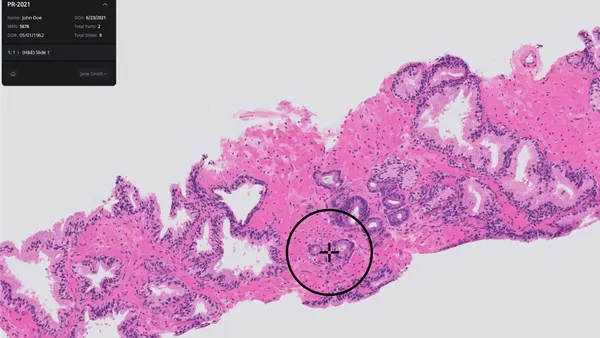Dive Brief:
-
Researchers have successfully used Roche Diagnostics' Elecsys immunoassay system to test blood samples for a biomarker of Alzheimer's disease.
-
The fully-automated assay predicted cerebral beta-amyloid status from blood samples but fell short of being accurate enough to independently confirm the presence of the biomarker for Alzheimer's.
-
Still, an independent researcher hailed the study as moving the field forward, noting it suggests blood-based assays could play a role in screening programs designed to rule out Alzheimer's or identify the need for further testing.
Dive Insight:
Blood-based biomarkers for Alzheimer's could significantly improve the process of diagnosing the disease and identifying patients eligible to participate in clinical trials. However, despite strong interest in the concept, the potential of blood tests remains unfulfilled, in part due to failures to replicate promising results.
Writing in JAMA Neurology, European academics and Roche employees detail efforts to use Elecsys to move the field closer to the realization of its potential. The researchers designed an assay to measure tau and two forms of beta-amyloid.
Across a training and validation cohort, the assay proved to be an accurate predictor of cerebral beta-amyloid status. The diagnostic accuracy of the test was further increased by factoring in whether a patient had the APOE genotype.
The researchers think the data suggest Elecsys immunoassays could be used to prescreen patients for clinical trials, thereby reducing the number of people who undergo costly and unpleasant lumbar punctures and positron emission tomography scans.
Sid O'Bryant, a University of North Texas professor who has worked on other blood-based tests for Alzheimer's and has served on an advisory board for Roche, called the performance of the assay "excellent" in a JAMA editorial to accompany the paper. O'Bryant highlighted the fully automated procedure and "solid results" generated when moving from the training cohort to a small test group as significant advances achieved by the project.
"Together, this study suggests that the field is [one] step closer to the actual application of blood based biomarkers with specific [contexts of use] in AD," O'Bryant wrote.
O'Bryant also sees room for improvement, though. The professor questioned the scalability of the method, noting the blood collection parameters diverge from standard clinical lab practice. Given an Alzheimer's screening assay could be run millions of times a year around the world, there is value in having a method that fits with current working practices.
The authors of the original paper discuss the potential to use a test derived from their work in general practice screening programs but, as O'Bryant notes, the research to date makes the approach a better fit for clinical trial enrollment. That position reflects the fact the test screens for amyloid positivity, a common inclusion criteria in clinical trials that O'Bryant thinks is less relevant in the real world given the lack of approved drugs targeting the peptides.
In recent months, FDA has granted breakthrough status to blood-based Alzheimer's tests in development at C2N Diagnostics and Fujirebio Diagnostics.












